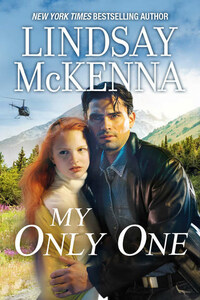A CENTURY OF AMERICAN ROMANCE
When Abby Fielding is knocked into the frigid Bering Sea, she has only one thought: to save the planet’s gentlest creatures from a whaler’s harpoon. When Aleksandr Rostov dives from his helicopter into those arctic waters, it is to rescue the woman he spotted through his field glasses. Little does the Soviet naval officer know she’s the woman of his dreams.
For Aleksandr, dreams are of Mother Russia. But as he and Abby bring their dramatic tale of courage to an eager world, she shows him the wonders of her homeland. And all the time, another, more personal story is unfolding before them.
To the world, they are heroic, but all they long for is to be together. For Abby and Alec, glasnost is more than a policy—it’s a prayer.
Chapter One
April 1987
“COMRADE CAPTAIN, THE Japanese catcher ship and American salmon trawler are going to collide!”
Second Captain Aleksandr Rostov twisted around in the nylon seat in the rear of the Soviet Helix helicopter. The gray-green water of the Bering Sea lay one thousand feet below them.
Craning his neck, Alec could see a huge Japanese factory ship, followed by a secondary whaling fleet of ten smaller vessels, known as “catchers,” shadowing a pod of humpback whales swimming in a northward direction. He saw the metal harpoon on the bow of one of the catchers aimed at the closest whale, not quite within range to shoot—yet.
“Comrade Captain, do you see them…?”
Lieutenant Yuri Mizin was obviously upset. The earphones in Alec’s helmet hissed, blotting out the rest of the pilot’s observation. But Alec could see Zotov, the helicopter crewman, excitedly jabbing a gloved finger at the Plexiglas window behind him.
Alec’s eyes narrowed. Mizin hadn’t dramatized the situation below them. One lone American trawler flying a Save Our Whales Foundation flag from the mast was brazenly challenging the path of the large, powerful catcher ship.
“Are they fools?” Alec said to no one in particular as Mizin dropped the helicopter to a lower altitude.
Mizin’s laugh was a bark. “Crazy Americans! Comrade Captain, didn’t you hear our radios picking up talk between the Americans and the Japanese whaling fleet since yesterday?”
“Off and on.” Most of the time he’d been busy in his office on board the Udaloy, not on the bridge.
He’d left the destroyer half an hour ago, for a quick hop to a Soviet cruiser forty miles south of their position. An Izvestia reporter doing an unheard-of story about officers in the naval fleet wanted to interview Alec in his position as the Udaloy’s navigation officer. Perhaps Alec’s study of communications had prompted the fleet commander to choose him. Whatever the reason, Alec surmised that with glasnost and perestroika becoming the new watchwords in the Soviet Union, this interview was all part of the new openness wanted by Moscow.
Alec had taken the fleet commander’s order to fly to the cruiser with good grace, even though it seemed so frivolous in comparison to his usual demanding duties. Now, though, he feared he was about to find himself in the midst of an incident.
“The trawler has been shadowing this fleet for the past five days,” Mizin explained. “First Captain Denisov wanted to make sure the Japanese didn’t fish in our two-hundred-mile economic-limit territory. That’s why we’ve been paralleling the whaling fleet, to remind them to remain in international waters. Yesterday afternoon this American trawler burst over the horizon and started breaking up the pods of humpback whales so the Japanese catcher ships couldn’t start harpooning them.”
Alec recalled Captain Denisov, his commander, saying something about the shadowy trawler because Alec had had to plot several different courses as a result. He watched the tiny trawler, partly rusted out and resembling more of a scow than a seaworthy craft, dip up and down like a cork in the eight-foot waves. The Bering Sea was not kind to ships at any time of year, but in late April, the sea was fickle and moody, just like some of the women he’d known during his naval career. A slight smile hovered around Alec’s thinned mouth. Not that any woman wanted her husband at sea for six or nine months out of each year. His friend Misha Surin from the Politburo had long ago dubbed him with the nickname of Lone Wolf.
“Lieutenant, is there a Coast Guard vessel nearby in case these ships collide?” Alec had been transferred from the Baltic Command in January, and his only experience with these kinds of incidents was hearsay. He did know, though, that it wasn’t wise for the trawler to brawl with a Japanese catcher fifteen times its size.
“Nyet, Comrade Captain. I’m worried. Transmissions from the Japanese factory ship indicate the captain has made it clear he will not order his catcher ship to turn aside if the American comes across his bow again. He intends to have his catchers shoot the whales or else.”














